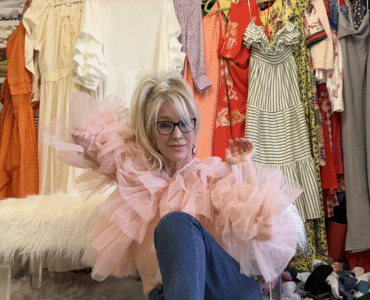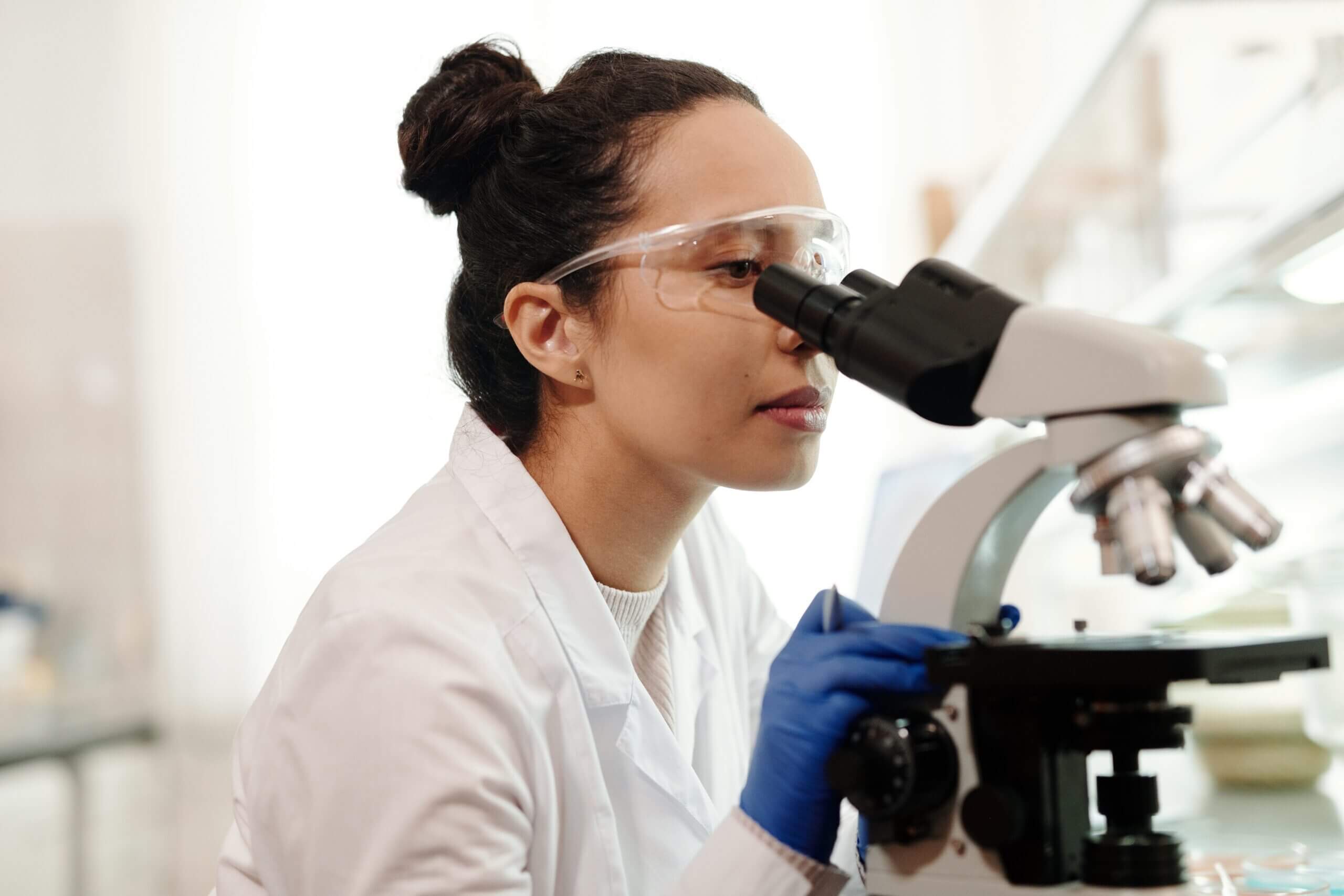Breast cancer is never just a medical diagnosis—it’s a deeply personal, emotional, and often isolating experience. While doctors and treatments play a critical role, what many women crave most is empathetic support and human connection from someone who truly understands. Enter the era of AI companions: empathetic, always-available digital guides that are reshaping how we support people affected by breast cancer.
AskEllyn: A Breast Cancer AI Companion with a Human Heart
In the growing field of health-focused AI, AskEllyn is pioneering a unique model: a chatbot built not just from data, but from lived experience. Co-developed by Ellyn Winters-Robinson, a breast cancer survivor and technology partner Gambit, AskEllyn embodies her voice, her journey, and her deep emotional insight.
Unlike generic medical chatbots, AskEllyn doesn’t just deliver facts. It offers real talk—the kind that only someone who’s walked the path can provide. Whether it is answering questions about mastectomies, dealing with hair loss, or coping with the emotional rollercoaster of a diagnosis, AskEllyn provides comfort, clarity, and hope.
As Ellyn says in one interview, “The goal is not to replace doctors—it’s to give women a safe space to ask anything, at any time, and feel heard.”
Why AI Companions Matter in Breast Cancer Care
The emotional burden of breast cancer can be overwhelming. Many women report feeling lonely, anxious, and unsure of what to ask their doctors. AI companions like AskEllyn can help bridge that gap by offering 24/7, judgment-free support.
Here’s how they’re making a difference:
1. Empathy at Scale
As GE HealthCare explains in their article on empathy-driven tech, emotional intelligence in technology is not a futuristic fantasy—it’s here. AI platforms like AskEllyn can be trained to recognize emotional cues and respond with compassion, offering warmth in a space that’s often sterile.
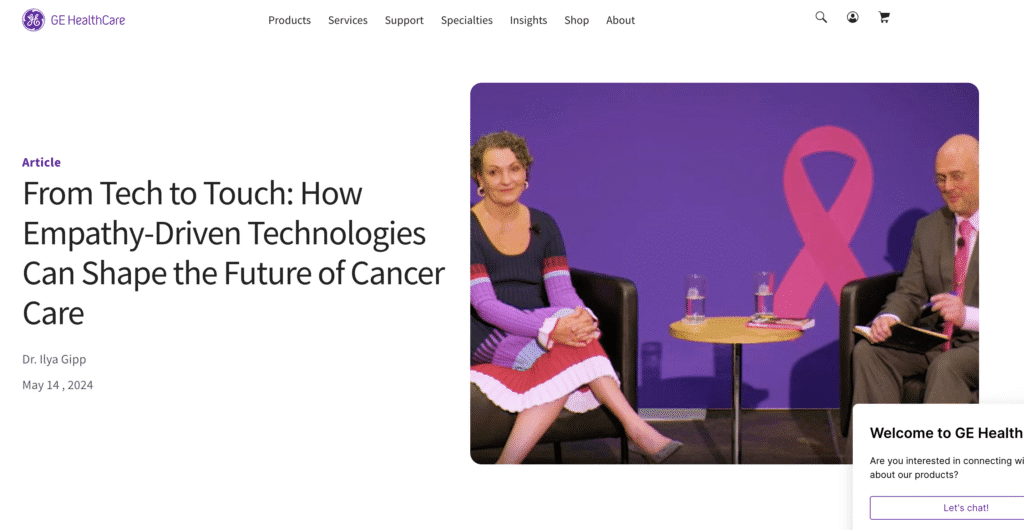
2. Filling the Information Gaps
Not every woman has access to a support group, a mentor, or a breast cancer navigator. AskEllyn offers accessible, trustworthy answers sourced from personal experience and verified medical knowledge. It’s like having a survivor on speed dial.
3. Support for Families, Too
Cancer doesn’t just affect patients—it ripples out to families, partners, and caregivers. AskEllyn also supports loved ones, helping them understand what the patient is going through and how best to help.
4. Powering a New Era in Women’s Health
The growing momentum around women’s health and AI is palpable. As covered in Communitech and Global News, platforms like AskEllyn are part of a larger movement to prioritize gender-specific and patient-driven innovation in health care, particularly in areas historically underfunded or misunderstood.
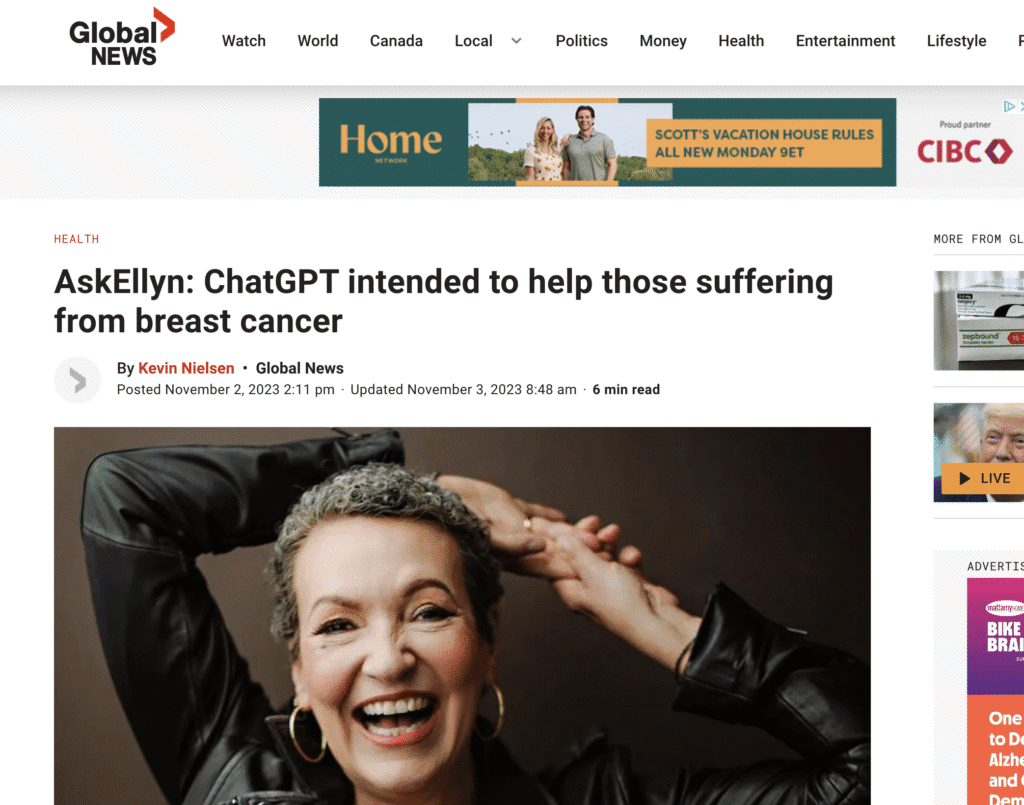
Built in Canada, Making Waves Globally
AskEllyn’s journey began in Kitchener, Ontario, a city with a growing reputation for tech innovation. Backed by the Accelerator Centre, and featured in The Waterloo Region Record, Communitech, and Fast Company, AskEllyn is proving that locally-grown AI can have a global impact.
The platform’s success has attracted attention from major players in healthcare and insurance. According to recent reports, AskEllyn is being considered as a digital support tool for tens of thousands of oncology patients, showing how a survivor’s story—when fused with the power of AI—can drive real change at scale.
Making Your Own AI Companion
AskEllyn is part of a broader trend of customizable AI. As Fast Company explains, tools like OpenAI’s ChatGPT can be adapted to reflect personal voices and narratives. This opens the door for hyper-personalized support models in health care, education, and beyond.
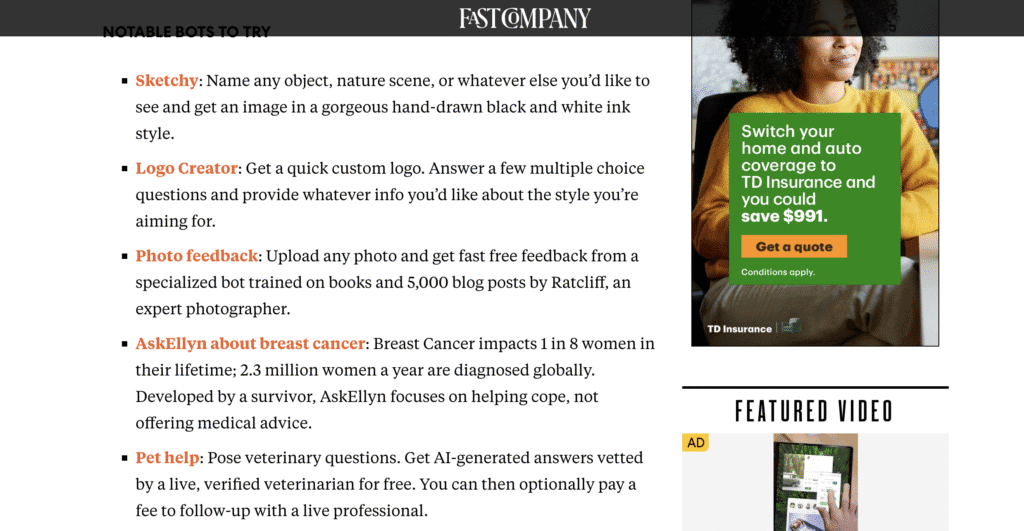
But AskEllyn isn’t just any chatbot—it’s proof that empathy, story, and technology can coexist. By building an AI that’s emotionally intelligent and rooted in real life, Ellyn Winters-Robinson has created a digital companion that truly meets people where they are.
The Future of AI in Cancer Care
The next wave of innovation in cancer care isn’t just about better drugs or faster diagnostics—it’s about humanizing the experience. AI companions like AskEllyn don’t replace care teams—they enhance them. They empower patients. They comfort families. And perhaps most importantly, they remind us that technology can be a vessel for empathy.
As AI continues to evolve, one thing is clear: the most powerful technologies are those that help us feel less alone.
Hear from the “real Ellyn.”

